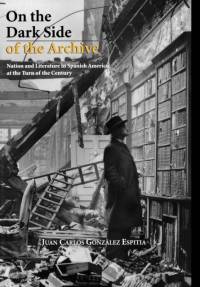Om On the Dark Side of the Archive
On the Dark Side of the Archive examines nineteenth-century nation building through narratives that are not part of the romantic or realist traditions, specifically those associated with the critique of traditional ideas often portrayed in Decadentism and modernismo. The study focuses on the "non-canonical" works of turn-of-the-century authors-including José María Vargas Vila, Horacio Quiroga, Clemente Palma, and José Martí-and concludes with a study that compares the literary portrayal of doomed societies in the nineteenth century with the work of contemporary authors, such as Fernando Vallejo. González Espitia establishes a critique of the concept of nation building in the romantic narratives of South America. These narratives are generally characterized by underlying erotic discourses meant to set the recently liberated countries of Latin America on a path toward class harmony, racial integration, socially beneficial marriage, and demographic expansion. An analysis of nation-building narratives understood as erotic discourses must also consider novels that manifest a dynamics of self-destruction. The authors included in this book subvert the idea of "nation" as a clear, positive, and fruitful space, bringing a dose of reality to this elusive concept. These authors design alternative futures for Latin America, futures that were seen as fruitless, obscure, contemptible, or doomed.
Visa mer

